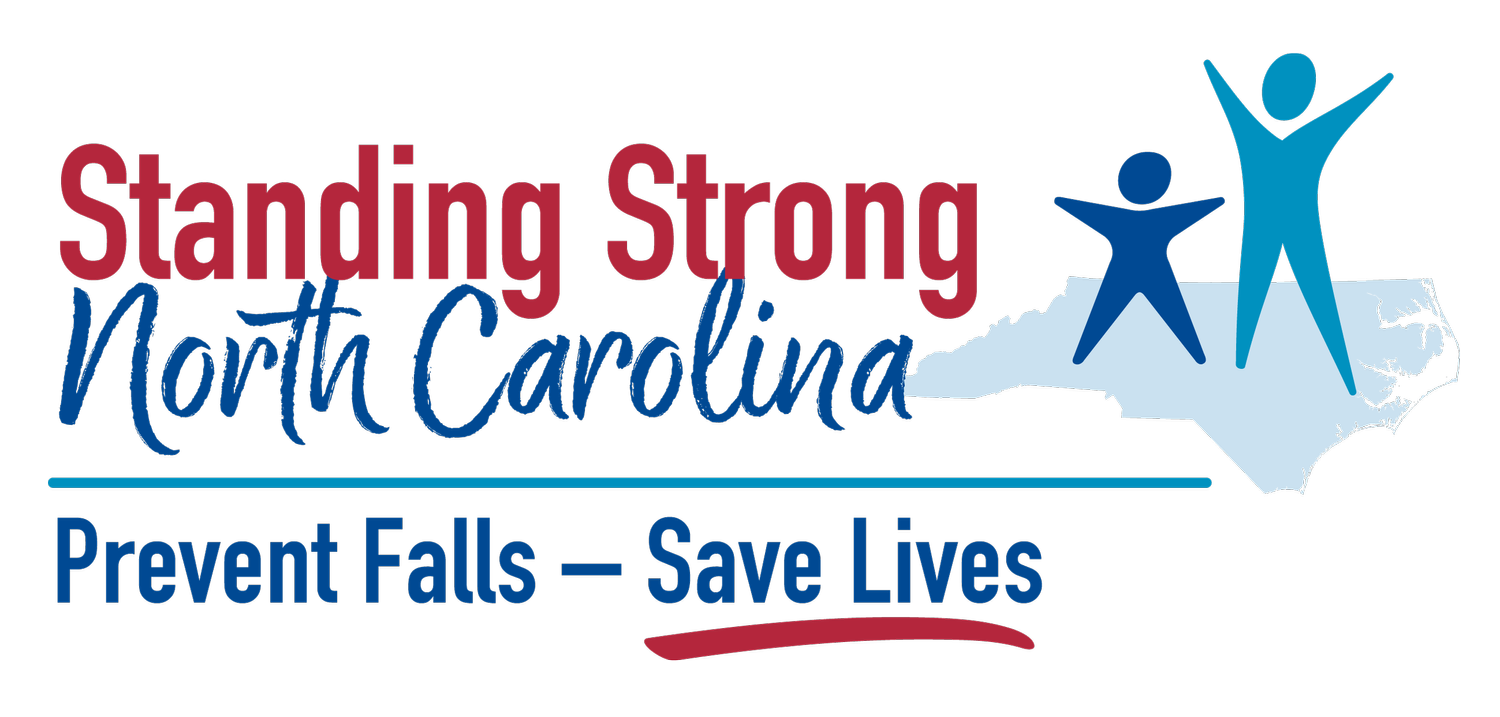
Let’s Talk about Falls!
Talk to a healthcare provider, pharmacist, family and friends
about falls.
As we get older, our bodies do change and it can be tough to realize that sometimes. The balance, strength, coordination, vision, and senses we had 10 years ago may be different today, AND there are steps we can take to stay strong and enjoy life.

Knowing more about falls can help you talk about it better, exercise safely, and live a healthier life.
Talk to a healthcare provider
Be sure to tell a healthcare provider if you had a fall, feel like you might fall or are afraid of falling. Healthcare providers can check your risk for falling and discuss any health issues that may increase your fall risk.
-

Ask a healthcare provider to check your risk for falling
Follow this guide of questions to ask your doctor.
Check out these 6 tips for having helpful conversations with your healthcare provider.
-

Take an online fall risk assessment
Check out this Falls Free CheckUp list.
Fill out the Stay Independent checklist. Talk about the results with a healthcare provider.
-

Discuss other health issues with a healthcare provider
Some health issues can increase your risk of falling, such as diabetes and arthritis. Learn more about chronic conditions and how they could increase your risk of falling.
Talk to your pharmacist and review your medications
Some medicines can make you sleepy or dizzy, which can increase your fall risk. Ask your pharmacist or a healthcare provider to review your medicines.
Fill out a medication list to discuss with your pharmacist or healthcare provider.
This flyer has a helpful question guide and a list of medication side effects.
Check out 5 Tips for Success when discussing medications.
Create an personal action plan: Fill in this chart with your doctor or pharmacist
Talk to your family and friends about falls
Are you scared to tell your family or friends that you fell or that you're afraid of falling? Many people feel the same way. Sometimes people don't share because they worry about losing their freedom or pride. But talking to your loved ones is one of the most important things you can do. They can help you stay healthy, independent, and on your feet!
5 Easy Ways to Talk to Your Family and Friends About Preventing Falls
Caregiver Conversation Guide for Preventing Falls
Chronic Conditions & Fall Risk
What do long-term health conditions and fall risk have in common?
Some long-term health conditions can increase your risk of falling, such as heart disease, diabetes, arthritis or dementia. These health conditions can lead to other issues that make falls more likely, such as:
Chronic pain can make it harder to move and weaken your muscles.
Low blood pressure, poor eyesight, losing feeling in your feet, and hearing loss can affect your balance.
Certain medication side effects can also make you more likely to fall.
If you have a long-term health issue, also known as a chronic condition, like diabetes, arthritis, or heart disease, you may be more likely to fall. Talk to your doctor about your health conditions and your risk of falling. The good news is that there are steps you can take to lower your risk of falling and chronic conditions!
The good news is there are things you can do to lower your risk.
What’s the solution?
Talk to your doctor. Ask your doctor about how any health conditions you have could relate to a risk of falling.
Stand Strong against falls and chronic conditions! Even small changes today can help you age healthier tomorrow. Click here for tips and ideas to get started.

